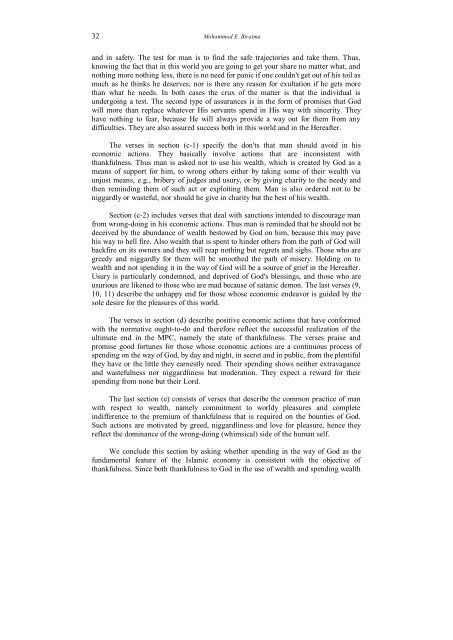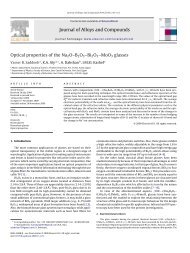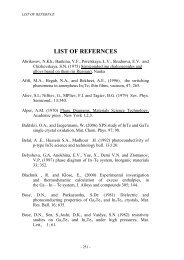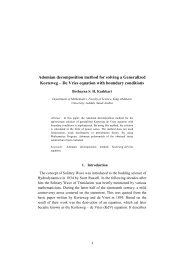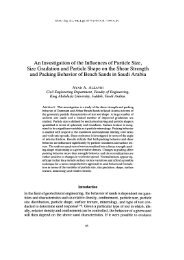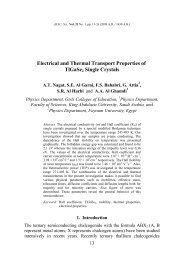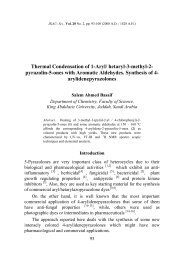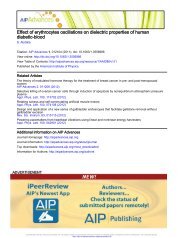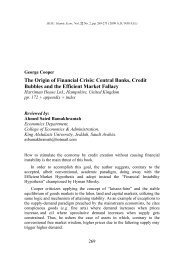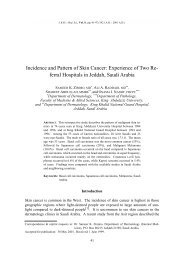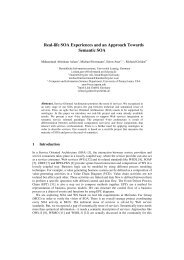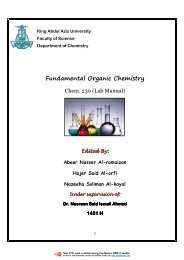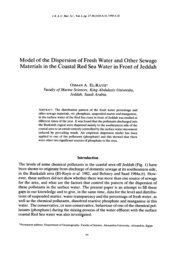A Qur'anic Model for a Universal Economic Theory
A Qur'anic Model for a Universal Economic Theory
A Qur'anic Model for a Universal Economic Theory
You also want an ePaper? Increase the reach of your titles
YUMPU automatically turns print PDFs into web optimized ePapers that Google loves.
32 Mohammad E. Biraima<br />
and in safety. The test <strong>for</strong> man is to find the safe trajectories and take them. Thus,<br />
knowing the fact that in this world you are going to get your share no matter what, and<br />
nothing more nothing less, there is no need <strong>for</strong> panic if one couldn't get out of his toil as<br />
much as he thinks he deserves; nor is there any reason <strong>for</strong> exultation if he gets more<br />
than what he needs. In both cases the crux of the matter is that the individual is<br />
undergoing a test. The second type of assurances is in the <strong>for</strong>m of promises that God<br />
will more than replace whatever His servants spend in His way with sincerity. They<br />
have nothing to fear, because He will always provide a way out <strong>for</strong> them from any<br />
difficulties. They are also assured success both in this world and in the Hereafter.<br />
The verses in section (c-1) specify the don'ts that man should avoid in his<br />
economic actions. They basically involve actions that are inconsistent with<br />
thankfulness. Thus man is asked not to use his wealth, which is created by God as a<br />
means of support <strong>for</strong> him, to wrong others either by taking some of their wealth via<br />
unjust means, e.g., bribery of judges and usury, or by giving charity to the needy and<br />
then reminding them of such act or exploiting them. Man is also ordered not to be<br />
niggardly or wasteful, nor should he give in charity but the best of his wealth.<br />
Section (c-2) includes verses that deal with sanctions intended to discourage man<br />
from wrong-doing in his economic actions. Thus man is reminded that he should not be<br />
deceived by the abundance of wealth bestowed by God on him, because this may pave<br />
his way to hell fire. Also wealth that is spent to hinder others from the path of God will<br />
backfire on its owners and they will reap nothing but regrets and sighs. Those who are<br />
greedy and niggardly <strong>for</strong> them will be smoothed the path of misery. Holding on to<br />
wealth and not spending it in the way of God will be a source of grief in the Hereafter.<br />
Usury is particularly condemned, and deprived of God's blessings, and those who are<br />
usurious are likened to those who are mad because of satanic demon. The last verses (9,<br />
10, 11) describe the unhappy end <strong>for</strong> those whose economic endeavor is guided by the<br />
sole desire <strong>for</strong> the pleasures of this world.<br />
The verses in section (d) describe positive economic actions that have con<strong>for</strong>med<br />
with the normative ought-to-do and there<strong>for</strong>e reflect the successful realization of the<br />
ultimate end in the MPC, namely the state of thankfulness. The verses praise and<br />
promise good <strong>for</strong>tunes <strong>for</strong> those whose economic actions are a continuous process of<br />
spending on the way of God, by day and night, in secret and in public, from the plentiful<br />
they have or the little they earnestly need. Their spending shows neither extravagance<br />
and wastefulness nor niggardliness but moderation. They expect a reward <strong>for</strong> their<br />
spending from none but their Lord.<br />
The last section (e) consists of verses that describe the common practice of man<br />
with respect to wealth, namely commitment to worldy pleasures and complete<br />
indifference to the premium of thankfulness that is required on the bounties of God.<br />
Such actions are motivated by greed, niggardliness and love <strong>for</strong> pleasure, hence they<br />
reflect the dominance of the wrong-doing (whimsical) side of the human self.<br />
We conclude this section by asking whether spending in the way of God as the<br />
fundamental feature of the Islamic economy is consistent with the objective of<br />
thankfulness. Since both thankfulness to God in the use of wealth and spending wealth


